Kiwis
 Tuesday, May 1, 2012 at 11:59AM
Tuesday, May 1, 2012 at 11:59AM
 Introduced my wife to her second Kiwi yesterday.
Introduced my wife to her second Kiwi yesterday.
Both are tall, blue-eyed, bald men with friendly smiles. One is named Wayne, the other Duane.
I think she's beginning to see a pattern.

 Tuesday, May 1, 2012 at 11:59AM
Tuesday, May 1, 2012 at 11:59AM
 Introduced my wife to her second Kiwi yesterday.
Introduced my wife to her second Kiwi yesterday.
Both are tall, blue-eyed, bald men with friendly smiles. One is named Wayne, the other Duane.
I think she's beginning to see a pattern.
 Thursday, April 26, 2012 at 10:07AM
Thursday, April 26, 2012 at 10:07AM
 A couple years back when I was watching the women's 800-m race at the Track and Field World Championship, I couldn't help noticing the sponsor's name, TOYOTA, emblazoned above each athlete's number as she sprinted around the track.
A couple years back when I was watching the women's 800-m race at the Track and Field World Championship, I couldn't help noticing the sponsor's name, TOYOTA, emblazoned above each athlete's number as she sprinted around the track.
It made me wonder what kind of message Toyota was trying to convey during the sporting event. Because, when you think about it, if you could run this fast, you wouldn't really need a Toyota, would you?
 Monday, April 16, 2012 at 10:05AM
Monday, April 16, 2012 at 10:05AM
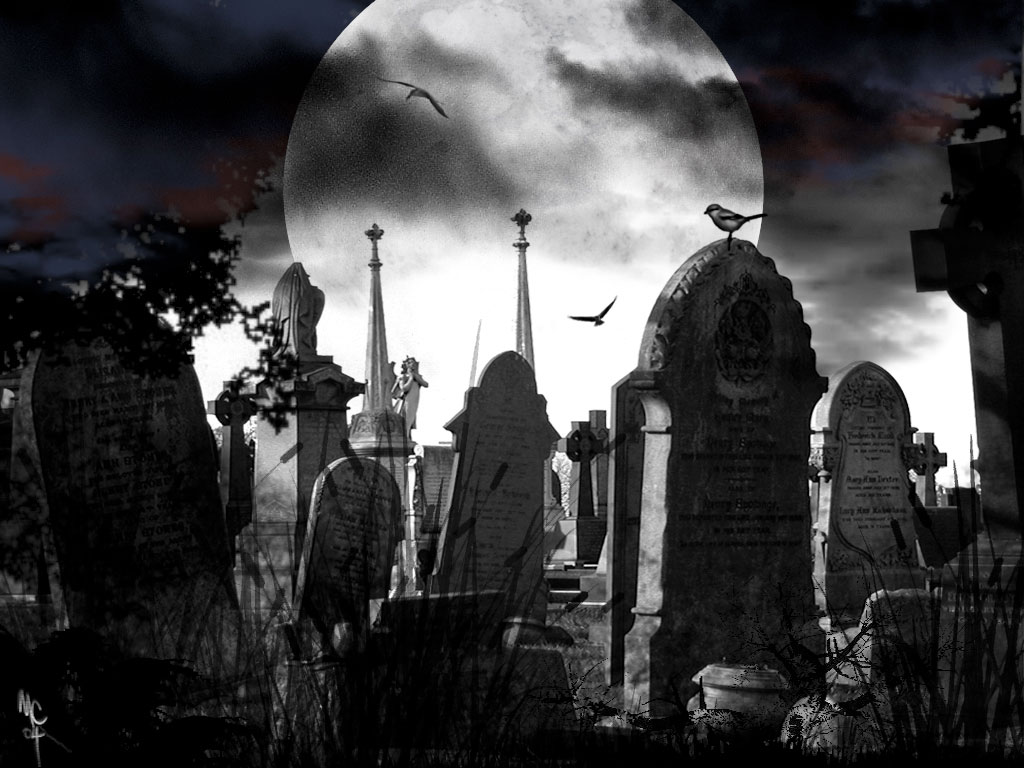 The Undertakers and Funeral Directors Guild of America would like to extend their heartfelt thanks to the National Rifle Association.
The Undertakers and Funeral Directors Guild of America would like to extend their heartfelt thanks to the National Rifle Association.
Their tireless efforts to preserve our sacred Second Amendment rights† have brought windfall profits to us over the years. On the occasion of your annual “Celebration of American Values” taking place in the beautiful city of St. Louis we are honored to show our appreciation for all the NRA has done for us. (Sales in small and mid-sized caskets have been particularly brisk, thanks in no small part to the policies of the NRA.)
Thank you, again, gentlemen for your good work. May God continue to smile upon your endeavors.
Tod Kaufmann
President of the Undertakers and Funeral Directors Guild of America
† The right to not merely bear arms, but to bear more arms than human arms can physically bear; the right to purchase guns whenever and wherever good Patriots like without restrictions; the right to purchase a flame-thrower or bazooka if need be to protect one's Freedom from the tyranny of the state; the right to have as many bullets in a clip as a Patriot, not the Government, decides is necessary . . .
 Saturday, April 7, 2012 at 2:03PM
Saturday, April 7, 2012 at 2:03PM

NBC Nightly News reported yesterday that debris from last year's tsunami was starting to reach Alaska's shores. Reporter Miguel Almaguer accompanied two biologists to a wildlife reserve where they found the two "suspicious" bottles pictured above and checked them for radiation.
The larger of the two bottles is actually Minute Made apple juice from Korea; the smaller bottle, written in simplified Chinese characters, is green tea from mainland China.
Nice try NBC!
 Thursday, April 5, 2012 at 9:25AM
Thursday, April 5, 2012 at 9:25AM
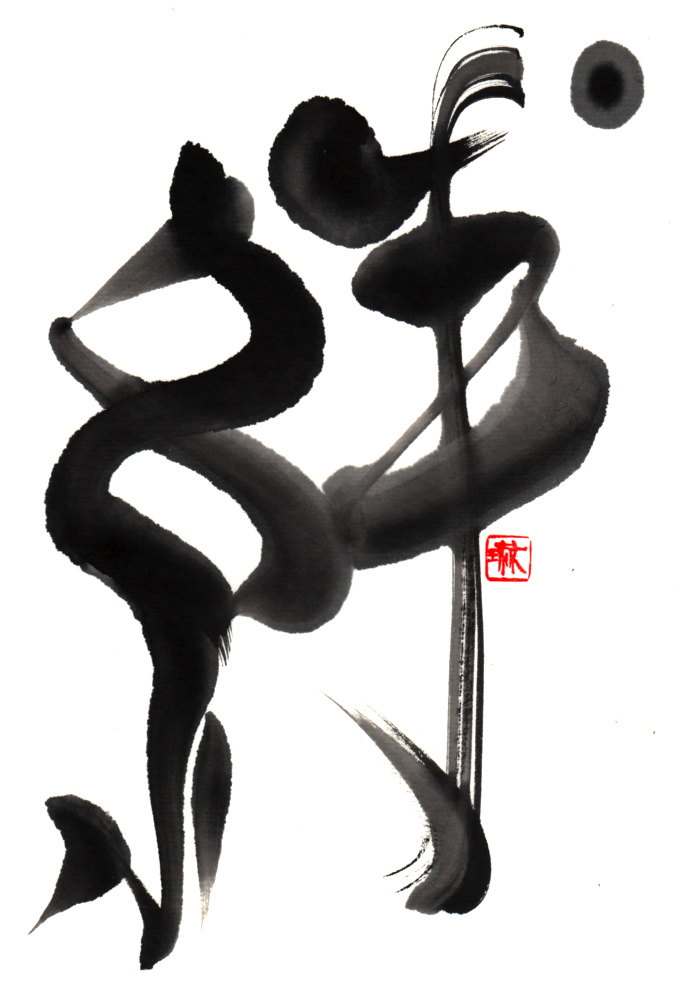 Kizuna (絆, bonds, ties) was one of a number of buzzwords to become popular in the wake of last year’s Tôhoku earthquake and tsunami. According to The Japan Times the word was used “to emphasize the importance of human sympathy and relationships in helping survivors of the monster disaster.”
Kizuna (絆, bonds, ties) was one of a number of buzzwords to become popular in the wake of last year’s Tôhoku earthquake and tsunami. According to The Japan Times the word was used “to emphasize the importance of human sympathy and relationships in helping survivors of the monster disaster.”
So popular has kizuna been that a new political party has even co-opted the word, calling itself the New Party of Ties (新党絆, Shin Tô Kizuna)[1], which proves once again that politicians will stop at nothing to win elections, including bastardizing a word that has had so much goodwill associated with it. The jerks ought to be put in the stocks for trying such a shamelessly self-serving stunt.
But enough about politics already.
Another phrase new to the Japanese lexicon since the tsunami has been denki yohô (電気予報). A play on the word tenki yohô (天気予報, weather forecast), denki yohô means “electricity forecast” and is a prediction of how much electricity will be consumed in a given day.
Most major Japanese electrical companies now feature electricity forecasts on their websites and the morning news programs have also started to include information about the day’s power supply and demand. It going to be interesting to see if the electric companies will be able to keep up with demand for electricity when it peaks in the summer with all of the nation’s fifty-four nuclear reactors idled.
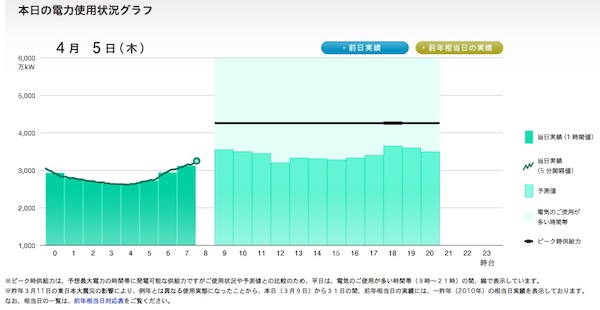
 Kyûshû Electric's electricity forecast
Kyûshû Electric's electricity forecast
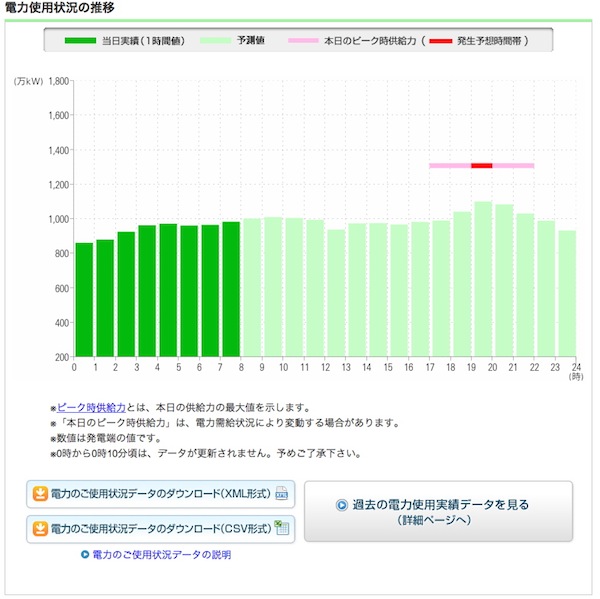
[1] Shin Tô Kizuna was formed by nine members of the Democratic Party of Japan (民主党), including Akira Uchiyama (内山晃), who resigned in December of 2011 over the party’s intention to raise the consumption tax.
 Wednesday, April 4, 2012 at 8:26AM
Wednesday, April 4, 2012 at 8:26AM

9/11, on which 2,623 Americans died, lead to America's invasion of two countries, and militarty operations in a handful of others. Combat soldiers are fighting in Afghanistan today.
In the past decade since 9/11, however, over 300,000 Americans have been killed and over 650,000 injured by firearms and yet Americans still refuse to do anything about it. Instead of much needed restrictions on concealed weapons, extended clips, assault weapons, and gun shows, we get "right to carry" and "stand your ground" laws that have only served to make neighborhoods more dangerous. This uniquely American brand of insanity needs to be cured.
 Tuesday, April 3, 2012 at 1:02PM
Tuesday, April 3, 2012 at 1:02PM
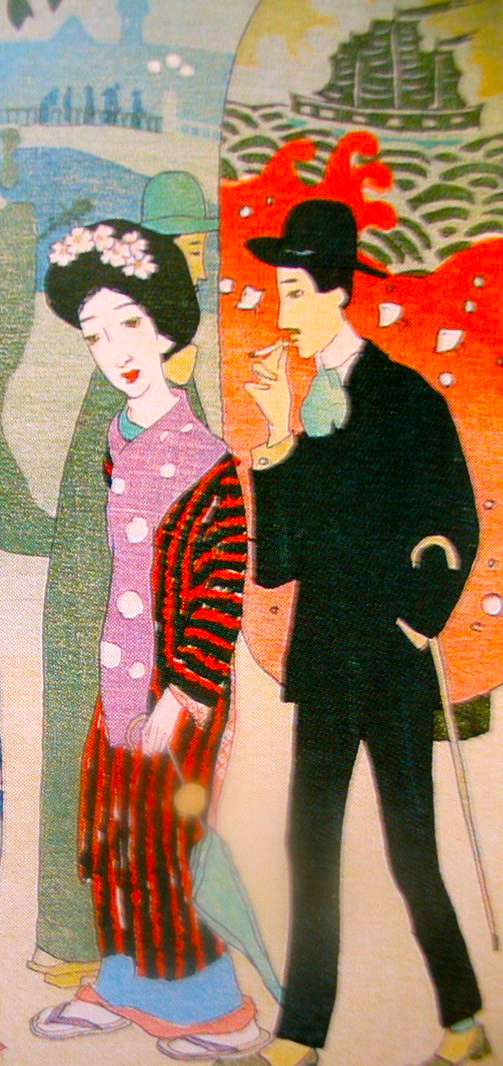 A month ago when I was doing some research into things men do that drive women up the wall, such as leaving the toilet seat up—it always bothers me when women forget to return it to its upright position—a Japanese woman told me she hated it when older Japanese men called their wives gusai (愚妻).
A month ago when I was doing some research into things men do that drive women up the wall, such as leaving the toilet seat up—it always bothers me when women forget to return it to its upright position—a Japanese woman told me she hated it when older Japanese men called their wives gusai (愚妻).
While I knew that Japanese men used to say that their wives were ugly (and their children, stupid) when talking to others, I had never actually heard this word used by anyone before. Gusai literally means “foolish wife”. Other self-deprecating terms for one’s wife include: keisai (荊妻) or “thorny wife”, which, just between you and me, is a suitable term for my own wife a day or two before her monthly “Girls’ Day” arrives; and, sansai (山妻), literally “mountain wife”, which implies that one’s wife grew up in the countryside and might not be the most refined of ladies.
There is no shortage of words for one’s wife in the Japanese language. Tsuma (妻) seems to be the most neutral, most common term. It’s the word what you’ll find in the dictionary defining all the other terms. It’s widely used in law and in the media. Men calling their own wives tsuma, however is a fairly new trend. In the Meiji Era (1868-1912), one’s wife was often called sai (妻).
Oku-san (奥さん) is a moderately respectful, yet informal way of referring to another person’s wife or when calling out to an older woman. The more polite form is oku-sama (奥様). Oku-sama was originally reserved for the legally recognized wife (正妻, seisai) of a daimyō (feudal lord) or kuge (court noble) but became popular among the samurai and merchant classes. Oku (奥) literally means "inner part" or "the back".
Kanai (家内), literally “inside the house”, is a somewhat polite term for wife and used when one is speaking to someone of an equal or higher position.
Both nyōbō (女房) and kami-san (上さん、lit. “Ms. Above”) are rather informal, and both are used by men when talking with co-workers or friends, namely, people they can feel at ease with. These words can also be used when talking about the wife of someone new to a group. Personally speaking, I’ve never cared much for the sound of nyōbō, which is too similar to the Japanese word for urine, nyō (尿). Kami-san has always had a cute-sounding ring to it.
Sai-kun (細君), which I have never heard myself, is a somewhat dated term used by men when talking about another person’s wife, particularly one who’s position is lower than their own. It can be used for talking about one’s own wife, but it’s not that common to use it in that matter anymore.
Kakā (嬶) is a slang term for talking about one’s wife that conveys a sense of being constantly scolded or pestered by the wife.
Yama no Kami (山の神, “God of the Mountain”) refers to a scary wife.
Finally, hitozuma (人妻), which means "another man’s wife", can carry the lewd connotation of wanting to cuckold a man by having a sexual relationship with his wife. Google 人妻 and you’ll be introduced to a whole new genre of Japanese pornography, lots of entertaining photos and cartoons of randy buxom women.
So, what do I call my wife? By her first name, of course.
You can find some interesting data on this here.
Another blogger has also written quite thoroughly on the topic here.
 Friday, March 30, 2012 at 10:51PM
Friday, March 30, 2012 at 10:51PM
My son and I were listening to music earlier this evening when he made a request: "Sah-sah."
"Sah-sah?"
"Sah-sah."
"Hai Sai Ojisan?" I asked, naming one of his favorite Okinawan tunes.
"No."
"Hai Sai Ojisan?" I asked again, and played the song.
"No. Sah-sah."
"Sah-sah?"
"Yes."
"Cha-cha-cha?" I asked. Omocha no Cha-cha-cha is a gratingly annoying children's song that is popular in Japan, and unfortunately popular with my son, as well.
"No."
I went to his playlist on my iTunes and clicked one song after another, and got an increasingly angry "No!" each time.
"Sah-sah," he insisted.
"Ah! ‘Nada So So!’" I said triumphantly. “Nada So So” is a song by the Trio from Ishigaki-jima called BEGIN. Eoghan often listens to the more popular cover by fellow islander Rimi Natsukawa.
"So So," Eoghan replied.
When I played “Nada So So”, however, he said, "No." It wasn't the song he wanted. Then started saying, "Sah-sah" again.
"Sah-sah?"
"Yes."
As he was growing more and more upset, I racked my brain to come up with the song he wanted and clicked a number of songs: No! No! No!! No!!! Sah-sah! Sah-sah!!
And then it hit me: the song he wanted was "Karabune Doh'i" (唐船どーい), a song I had only recently downloaded and one he had heard only a dozen of times. When the song started to play, Eoghan’s mood changed dramatically: he went from tears of frustration to a big smile and started dancing to the music.
Hooray for Daddy! I even got a kiss from the boy.
"Karabune Doh'i" follows the Orion Beer commercial.
 Friday, March 23, 2012 at 10:16AM
Friday, March 23, 2012 at 10:16AM
If you live in Fukuoka City, Yamé is one of those outlying rural towns you can’t quite ignore. Famous for its green tea, known as Yamé cha, the region is Japan’s sixth largest producer of tea and the nation’s number one source of gyokuro (玉露), green tea of the highest quality. Yamé is also famous for its Yamé Ningyô (人形, dolls), commercials for which are aired on TV every year just after New Year’s.
And so, after living in Fukuoka for as long as I have and constantly hearing about Yamé—I can even sing the Yamé Ningyô Kaikan jingle—I decided to finally go and see for myself if the town had anything worthwhile to offer.
My first impression was no. Yamé was just another sad little town with the same miserable prefab constructions housing the same chain drugstores and discount shops you’d find just about anywhere. There was also the all too common monstrosity; in this case, a “traditional craft” center, an eyesore that was not very “traditional” or “crafty” looking. The Yamé Dentô Kôgei Kan had been constructed with the same bureaucratic zeal and desperate hope that if we build it they, the great busloads of tourists, will come.
It always makes me wonder what the city officials and local politicians must think when, in spite of their gleaming, yet austere, monuments to local culture, no one comes. If I were one of them, I would slip out of town in the middle of night, embarrassed by what I had done. I doubt that’s what happens though. Most likely, they slap each other on their backs and say, “Look what we did!” and start making arrangements to build the next monstrosity. Meanwhile, the city going deeper into debt.
One other thing I find odd about sleepy little towns like Yamé is how good the infrastructure looks. The roads are immaculate, beautifully paved and maintained, and yet the houses and buildings lining the streets are crumbing or shuttered. You’d think those city officials and local politicians would notice the incongruence, but, no, they’re too busy slapping each other on the back and saying, “Look what nice roads we have!”
That said, if you were to venture into the center of Yamé, into the heart of its old town, you’ll be rewarded with an unusual sight in Japan today: long rows of traditional Japanese houses, dating back a hundred, two hundred years or more. A few of these homes are nicely maintained: the ugly metal siding has been removed to reveal the white-washed clay walls, called shirakabe (白壁), the shabby aluminum doors from YKK are gone, and the glass in the windows is original, having warped over time.
When I traveled to the town of Kitsuki, Ôita prefecture last autumn (still meaning to write about that trip), it occurred to me that the places that were the most beautiful in Japan were those which had been passed by or overlooked during Japan’s boom years when whole neighborhoods of traditional houses were bulldozed in order to make room for shabby condominiums, ugly prefab buildings, and gaudy pachinko parlors or love hotels. Thank God the real estate bubble burst before the cancerous “development” could spread to Japan’s more rural towns.
Yamé’s old town has potential and needs more investment in protecting and improving the appearance of the old houses. The metal siding has got to go, the aluminum doors need to be replaced with traditional wooden doors. There need to be regulations, like those in England protecting cultural assets. A tax on Yamé’s famous tea might help create a fund to do just this, but local governments are often prevented by the central government from levying such taxes. Ôsaka’s firebrand mayor, Tôru Hashimoto, has argued for more autonomy in this respect and it remains to be seen if his party Ishin no Kai will, one, be able to win enough seats in parliament, and, two, have the power to take on Japan bureaucracy and begin making the radical, yet necessary changes to the way business is done in Japan.
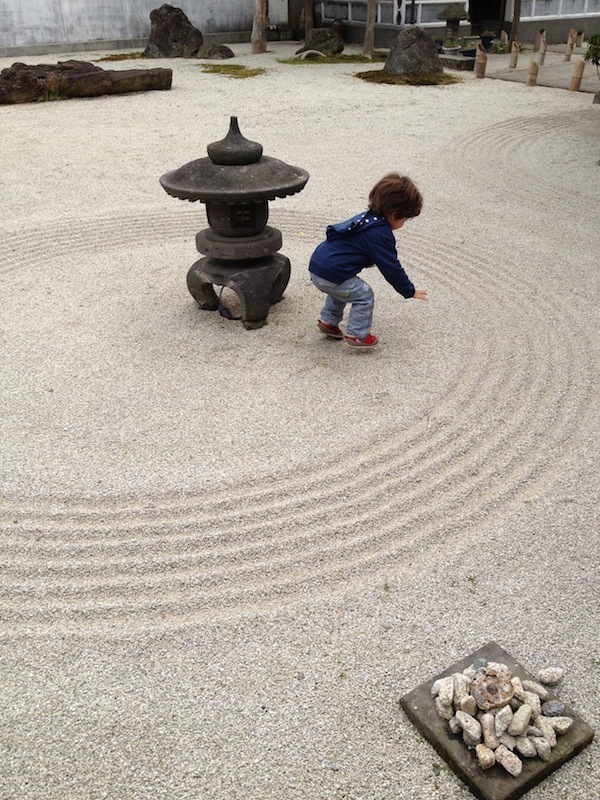 Noooooooooooo!!!!
Noooooooooooo!!!!
 Wednesday, March 21, 2012 at 12:28PM
Wednesday, March 21, 2012 at 12:28PM
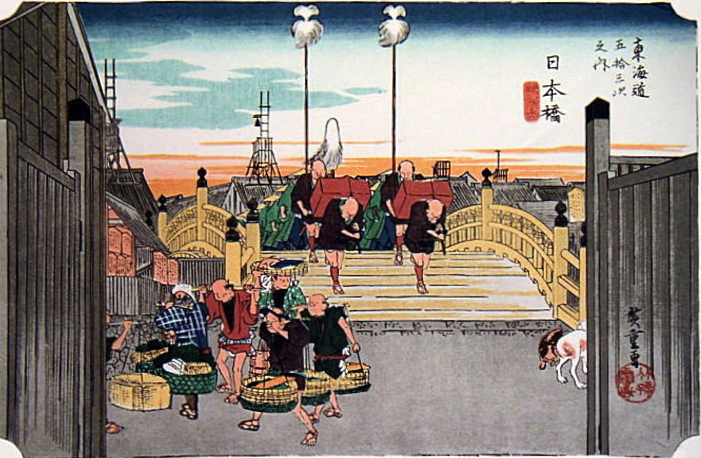 My last post reminds me of something I wrote in my second novel No.6:
My last post reminds me of something I wrote in my second novel No.6:
I can’t believe the two would take time out of their busy schedules just for this, and, yet, we spend the next hour or so prattling away like three buddies in a Starbucks. Mind you, I am not complaining--anything's better than sitting cross-legged on a sponge in that miserable, little cell--I just can't understand what all the urgency in putting me behind bars was when the "interrogations" would end up being so pedestrian.
With his head against the wall, Ozawa asks if I find Fukuoka a livable place.
I confess! I did it! I did it!
"Everyone's always asking me that," I reply with a sigh, "and I never quite know how to answer."
"It's a simple question," he says.
"It is, yes, but I often get the impression that people really don't want to know what I feel about the place. Rather, they're just prodding me into telling them what a wonderful city Fukuoka is. Is Fukuoka a good city? Yes, quite. It's clean, and by clean I don't mean beautiful because like most Japanese cities it isn't. Frankly speaking, it's ugly, but it is clean."
"I never noticed," Ozawa says.
Sadly, the drug enforcement agent is telling the truth.
In Tokyo, there's a famous bridge, called the Nihonbashi (lit. Japan Bridge) that crosses a river of the same name.
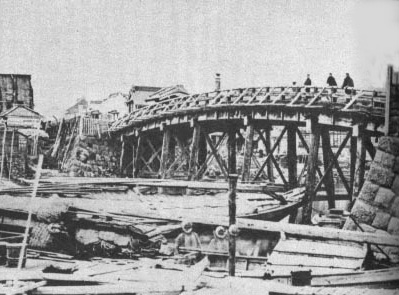 The original wooden Nihonbashi, which features prominently in ukiyo-e prints was constructed in 1603. The stone bridge spanning the river today was built in 1911 and is representative of the architecture of the Meiji Era, which was heavily influenced by British design.
The original wooden Nihonbashi, which features prominently in ukiyo-e prints was constructed in 1603. The stone bridge spanning the river today was built in 1911 and is representative of the architecture of the Meiji Era, which was heavily influenced by British design.
A popular sightseeing spot for Japanese today, many Japanese visiting the capital from the provinces have their picture taken at the bridge, which is considered the center of Tôkyô, and the point of reference used when measuring the distance from the city.
Until the 1960s, Mt. Fuji was still visible from the bridge. Any view you might want to enjoy today, however, has been blighted by an expressway that passes overhead.
I brought the eyesore to the attention of a middle-aged woman who was showing me some snapshots from a recent trip to Tokyo.
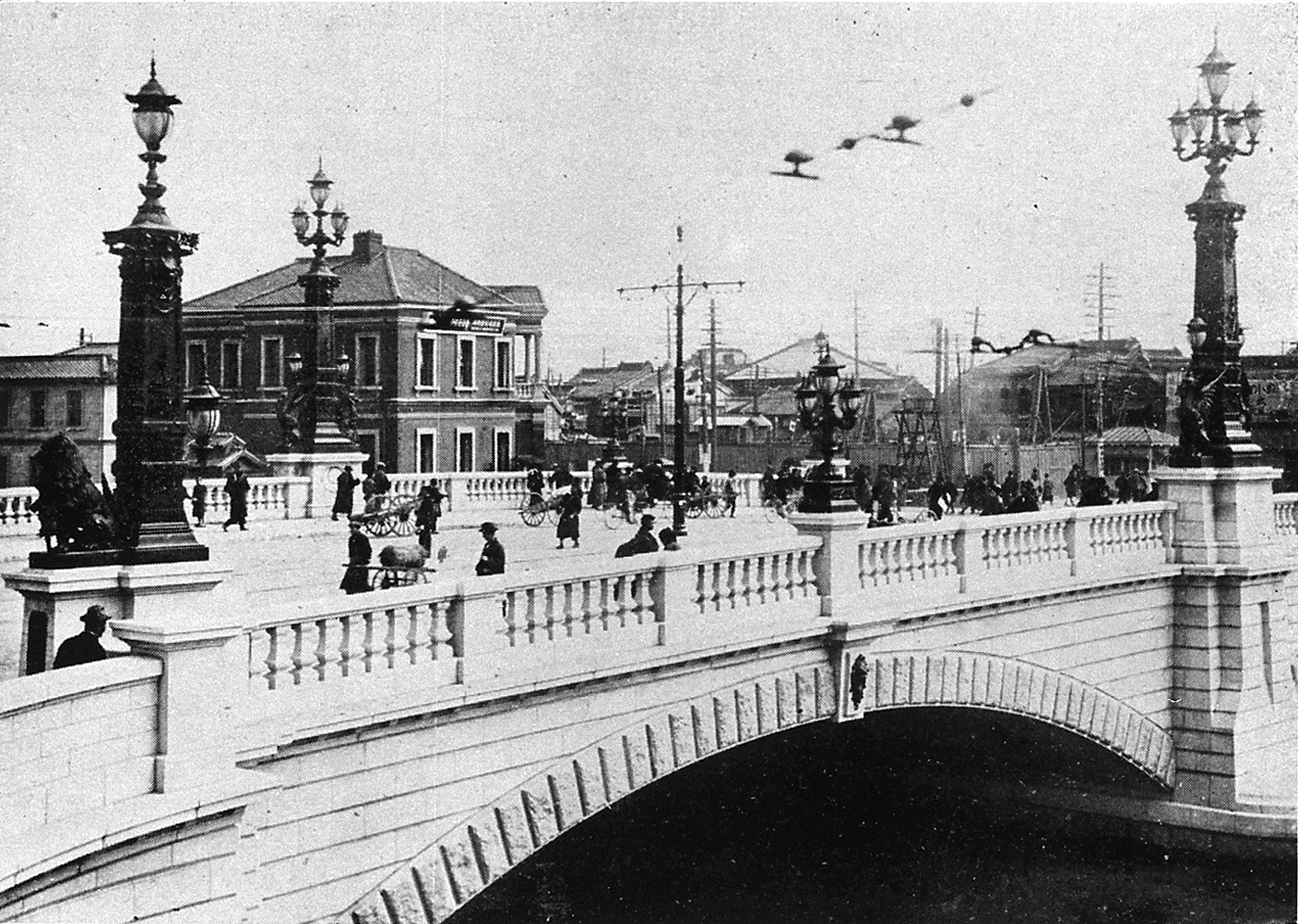 "This would have been a beautiful view,” I said, “if the Ministry in charge of roads hadn't ruined it by constructing this ugly highway."
"This would have been a beautiful view,” I said, “if the Ministry in charge of roads hadn't ruined it by constructing this ugly highway."
She was surprised to hear that. Focused so intently on the bridge itself, lost in myopic nostalgia, she hadn't even given a thought to the highway and the noisy traffic roaring ahead.
But that's the way it is with the Japanese. They can find a dandelion in a dunghill and consider its beauty worthy of a haiku. The unthinking acceptance of concrete as progress has allowed the government to pave over the country creating a monster of modernity.
And Japanese will tell you that they haven’t noticed.
A city like Fukuoka is only moderately better. Without any semblance of an overall plan, though, it has become an architectural free-for-all, left to the capricious collusion of greedy property developers, landowners, and unthinking bureaucrats.
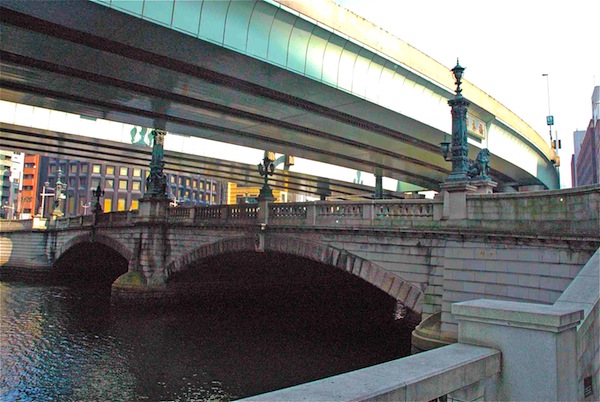 But, yes, Fukuoka is clean. I'll hand it that. There's no litter in the streets, hardly any graffiti on the walls. The Japanese tend to respect public property, other people's property, which is something American and European youth might consider emulating before they spray, scratch, or scrawl their name on a wall like a mongrel marking it's territory with piss.
But, yes, Fukuoka is clean. I'll hand it that. There's no litter in the streets, hardly any graffiti on the walls. The Japanese tend to respect public property, other people's property, which is something American and European youth might consider emulating before they spray, scratch, or scrawl their name on a wall like a mongrel marking it's territory with piss.
"The food is good, too," I say. "You can duck under the noren curtain of just about any restaurant in my neighborhood of Daimyô and be fairly certain of getting a reasonably priced meal that will knock your socks off."
"Got that right," Ozawa says, closing his eyes and imagining, I suspect, a big bowl of Hakata tonkotsu (pork bone) ramen.
"Now, Ozawa-san, if you're asking me whether it's easy for a foreigner to live in this town, then you're asking the wrong guy."
"Why's that?"
"Because I've been out of place my whole life. I don't know what it's like to feel at home."
"Oh?" he says, straightening up.
"Ever since I was a kid," I tell him, "I've been going back to my father's hometown of Avignon, near the south of France. I speak the language all right, not perfect of course, but I manage, and have a French name. You'd think I'd be able to kick back and enjoy myself there. The local French, though, they take one look at my face and see an Arab. If I tell them, that I'm not Arab, that I'm half Lebanese, the tension eases up a bit, but not a whole lot. They don't consider me half-French, they see me as being Lebanese. And, well, if you're half French, you're half of nothing and half of nothing is nothing, after all."
"Remarkable," says Nakata, leaning forward and propping his pudgy mug up in the palm of his left hand. "I had no idea it was like that there."
"In America it's not much different. Even though I was born there and spent most of my life there. I've never managed to fit in."
"Why not?" Ozawa asks.
"Beats me! America's supposed to be a country of immigrants, people coming from every corner on the earth, many only two or three generations earlier. You'd think that with all that rich culture pouring into the U.S., the country would have this sumptuous cultural heritage and celebrate their roots more. Your average American, however, couldn't care less about what is happening outside the country. The ignorance is pervasive and entrenched."
To read the first installment of No.6, please go here.
To read the remainder of No.6, please visit here.
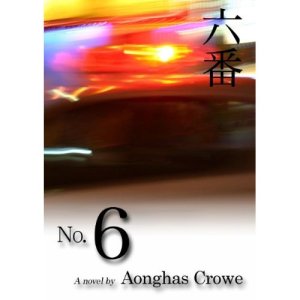 © Aonghas Crowe, 2010. All rights reserved. No unauthorized duplication of any kind.
© Aonghas Crowe, 2010. All rights reserved. No unauthorized duplication of any kind.
注意:この作品はフィクションです。登場人物、団体等、実在のモノとは一切関係ありません。
All characters appearing in this work are fictitious. Any resemblance to real persons, living or dead, is purely coincidental.
No. 6 is now available on Kindle.
 Tuesday, March 20, 2012 at 10:05AM
Tuesday, March 20, 2012 at 10:05AM
 About this time last year, I heard an American tourist give the following eyewitness account of the riots in Cairo:
About this time last year, I heard an American tourist give the following eyewitness account of the riots in Cairo:
“We actually arrived here on Wednesday night, um, after everything had been going on. We actually got stopped at the airport. The tourist police stopped our bus at the airport because there were protestors on the street . . . They were throwing, like, . . . flame Molotov cocktails. There were, there was, like, explosions, uh, teargas canisters, fires were everywhere . . . The second wave came at about four thirty or five and there were like tens of thousands of people just coming over that bridge . . .”
Ugh.
I had to turn the news off. I had heard enough. The cruelty, the barbarism. I couldn’t bear to hear the English language brutalized anymore.
When did Americans start speaking like morons?
A few years ago while visiting the States I went for a drive with my nephew. Every other word out of the boy’s gob was “like”, and after thirty minutes of it my ears started to ring, so whenever he said “like” I gave his earlobe a flick. Call me the Miracle Worker, if you like, but before long I had cured the boy of this annoying tic. Perhaps, we can introduce this method in American schools.[1]
“Like”, unfortunately, is only, like, the beginning of this “American exceptionalism”. Listen to an American try to explain something and they’ll inevitably use the modifier “basically”.[2] Now, I’m a big fan of the NPR’s Planet Money podcast, but I’ll be damned if the reporters can’t get through a single episode without saying this word a half dozen times. “Actually” is another word I cannot stand.[3] When used correctly the word is innocuous, but used at the head of every nearly every paragraph it just grates on my nerves. The adjectives “amazing” and “awesome” have got to go, too.
If Neil Armstrong were a modern American teenager:
Dude, that’s, like, one small step for a man, one awesome leap for, like, mankind.
FDR as an American teen:
So, basically, let me just say that I, like, believe the only thing we, like, gotta be ‘fraid of is, like, fear itself.
Lincoln as a modern American teenager:
About, like, 90 years ago some really smart dudes made, like, a country on this, um, continent with, like, some really amazing ideas, like, liberty. And it was, um, dedicated to the idea that we’re all, like, equal.
Kennedy as a modern American teenager:
Man, don’t be fucking asking, like, what the country can do for you an’ shit like that, you know? Ask, um, like, what you can, um, what you can do for, like, your country.
The Declaration of Independence if made on Facebook:
hey guys! basically we think these truths are, like, duh! u no, everybody is, like, the same, u no, equal and, all everything . . . and, um, god gave them, like, rights and stuff like, life, liberty and, um, oh yeah, happiness.
Palin is a modern American teenager:
There were a lot of WTF moments throughout that speech . . . That was another one of those WTF moments. He needs to remember that what happened back then with the former communist USSR and their victory in that race to space, yeah, they won, but they also incurred so much debt at the time that it led to the inevitable collapse of the Soviet Union. (Unfortunately, this was verbatim.)
[1] I had the pleasure of overhearing a young Scottish woman crying into her beer the other day and every other word out of her mouth was “like”, too. The English language is doomed.
[2] Enrich your vocabulary and impress your friends! Try some of these adverbs on for size: fundamentally, essentially, in essence; firstly, first of all, first and foremost, primarily; at heart, at bottom, au fond; principally, chiefly, above all, most of all, mostly, mainly, on the whole, by and large, substantially; intrinsically, inherently; informal at the end of the day, when all is said and done. (Courtesy of The Oxford American Writer’s Thesaurus)
[3] Enrich your vocabulary some more! Really, in (actual) fact, in point of fact, as a matter of fact, in reality, in actuality, in truth, if truth be told, to tell the truth; literally; truly, indeed.
 Wednesday, March 14, 2012 at 2:14PM
Wednesday, March 14, 2012 at 2:14PM
 One of the better TV specials on the first year anniversary of the Tôhoku earthquake and tsunami Sunday spotlighted the massive disaster relief operation conducted by the U.S. Armed Forces known as Operation Tomodachi (Friend). Some 24,000 U.S. service members took part in the operation, which brought food and supplies to stranded communities as well as heavy equipment to help clean up the debris left by the tsunami. The relief effort, which cost $90 million and involved 189 aircraft and 24 naval ships, including the USS Ronald Reagan supercarrier and its battle group, earned American so much goodwill that six months on, 82% of Japanese, a record, said they had friendly feelings towards the United States. Why, it even made me feel proud to be an American for once.
One of the better TV specials on the first year anniversary of the Tôhoku earthquake and tsunami Sunday spotlighted the massive disaster relief operation conducted by the U.S. Armed Forces known as Operation Tomodachi (Friend). Some 24,000 U.S. service members took part in the operation, which brought food and supplies to stranded communities as well as heavy equipment to help clean up the debris left by the tsunami. The relief effort, which cost $90 million and involved 189 aircraft and 24 naval ships, including the USS Ronald Reagan supercarrier and its battle group, earned American so much goodwill that six months on, 82% of Japanese, a record, said they had friendly feelings towards the United States. Why, it even made me feel proud to be an American for once.
Now, compare that with Sunday’s murder of sixteen Afghan civilians at the hands of, we are told, a single 38-year-old American staff sergeant. As if the situation in Afghanistan weren’t already bad enough, this senseless crime will only serve to sow more seeds of hatred in that country’s rich soil of antipathy for the U.S. And Americans wondered after 9/11 why they were so hated.
Here’s a wild idea: let’s pull the military out of Afghanistan. If Karzai can’t survive without us, why, he should stop pretending to be the country’s president. And rather than drop bombs on people, let’s start dropping relief packages with food and clothing, toys and books for the kids, tools and equipment for farmers.
End the wars, begin Operation トモダチ, Operation Friend, Operation Amigo, Operation نَصير, Operation ملګرى , Operation 朋友, Operation 친구, Operation دوست. . . If anything, it’ll be hell of a lot cheaper than the $510 trillion and counting we’ve already blown on that one country alone.
 Wednesday, March 14, 2012 at 12:00PM
Wednesday, March 14, 2012 at 12:00PM
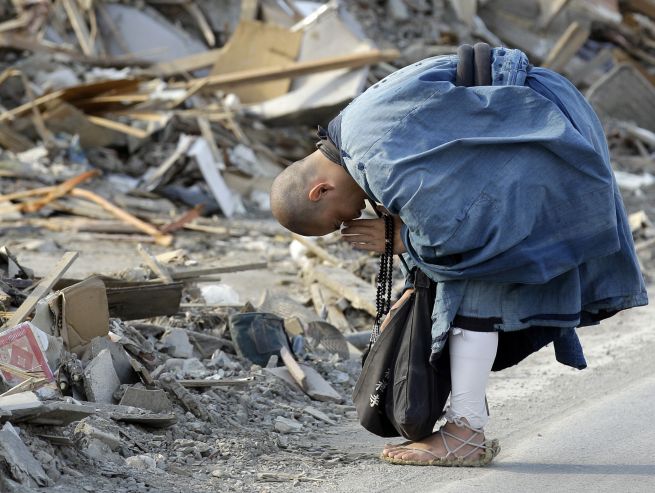 Sunday marked the one-year anniversary of the Tôhoku earthquake and tsunami which claimed 15,854 lives. 3,155 people, including many children, are to this date still missing; their remains may never be recovered.
Sunday marked the one-year anniversary of the Tôhoku earthquake and tsunami which claimed 15,854 lives. 3,155 people, including many children, are to this date still missing; their remains may never be recovered.
As was to be expected, there were a number of specials on TV in remembrance of the disaster and as I watched them I found it hard to keep the tears from falling.
A few days later, I was talking to a student of mine, a rather somber but kind-hearted psychiatrist, about the tsunami. He asked an age-old question: why does God let bad things happen to good people.
“That question assumes a number of things,” I replied. “One, that there is a god, whatever that means; two, that he, she, or, it actually cares about us humans; and, three, that he, she, or it has the power to prevent things like tsunami.”
Personally, I’ve never seen evidence for any of those things. People often claim this or that miracle happened, but what they are in effect saying is that something highly improbable occurred. A patient suffering from a rare and deadly form of cancer survives; a man trapped in his car without food or water for over two months lives to tell the tale; an infant is found unharmed among the wreckage of a commercial jet that has crash landed, killing every other passengers. All true, all highly improbable, but miracles? I doubt it.
Incidentally, one thing I do find worthy of the word “miraculous” is life itself. I was a biochem major in university, and the diversity, majesty and complexity of nature awes me. (It always strikes me as odd that people who consider themselves good Christians—I’m thinking here of Republicans back in the States—have so much contempt for the environment.) I don’t know what the odds are that a species could evolve to become as intelligent and sophisticated as humans—I would argue that most of us still have plenty of room for improvement—but I do know that mankind has only been on this planet for 0.00348%, or a mere 1/28,750’s of earth’s 4.6 billion years. Seems Mother Nature has had quite a bit of time to slowly tinker with life.
No, I find it better to assume the worst and hope for the best. The worst being that this is all there is: there is no Heaven, no Hell—aside from the lives so many of us are forced to eek out day-in and day-out on this planet—no Purgatory, and no God who cares for all of our suffering and anxiety. Once you've assumed that, you can start treating your fellow humans with more respect, and you can start behaving morally without needing a carrot or stick to motivate you. You’ll also begin to accept that bad things happen to good people because that, unfortunately, is the fickle nature of luck.
As for the best? That we might be completely wrong; that when we die, all of us, God’s orphans to a man, will be taken into the bosom of Heaven. And at the Final Judgment, it will be God himself who is judged; and that the remorse he shows for having abandoned us will be sincere enough to comfort even his greatest victims.